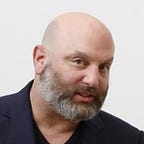Brief History of Urban Us
From an event at the start of 2014 focused on cities and climate, to the leading early stage climate-focused platform in 2021.
Urban Us Public Benefit Corporation
We founded Urban Us in 2013 at a gathering in Miami to see if we could invest in startups aimed at upgrading cities to respond to climate change. We set up one of the first Delaware Benefit Corps to reflect our commitment to public benefits and financial returns. And we organized one of the first online communities to help us meet founders and then support them.
Rapid Scalable Impact
When UU began, we asked how teams might reach 100 cities within 5 years. We were curious about the impact on enterprise value, but also the public benefits from this type of rapid scale. At the time, we know this type of scale had been achieved by startups like ZocDoc and Uber, growing city-by-city and these successes enabled us to more quickly identify opportunities for impact within a decade.
We then added specific impact considerations related to unlocking the impact for GHG reduction consistent with 1.5C climate pathways as well as resilience assuming at least this amount of warming. All of these goals benefit from density but also manufacturing learning curves. During the pandemic they also benefited from rapid shifts in online marketing and sales during the pandemic.
VC Funds
We’d previously built startups and invested at the early and growth stages, but a focus on climate and cities introduced some unique challenges, most notably —
- Lots more hardware
- Government procurement
- Regulated industries
We quickly learned that most of the prospective co-investors we knew were right to be concerned about each of these areas. One early hardware team made a late change to their product, significantly delaying shipping; this seemingly small change cost them the company. Other companies tried but eventually pivoted away from B2G sales.
Some of the challenges are discussed in the Urban Us Harvard Business School Case Study that covers investment decisions related to Remix (acquired by Via), SeamlessDocs (acquired by Kofile), Starcity (acquired by Common), and One Concern.
Credit Funds
By 2021 it was clear that our three funds were top quartile or top decile and that we’d also achieved meaningful impact in areas like GHG reductions. Our portfolio impact outperformed Tesla in 2020. But this wasn’t just the result of our approach to venture.
Soon after we started we noticed specific fundraising challenges related to issues like working capital or equipment finance. Later we started to realize that hardware startups were often raising additional equity instead of being able to access debt — the end result was more dilution for founders and investors. So we announced Perl Street which ultimately became our credit fund and SaaS offering (the team participated in the YC W21 batch).
Playbooks & Radars
From the start, we looked for ways to share what we had learned from 1000s of founder and investor discussions and 10’s of thousands of documents; to do this, we created the
- Urbantech Investor Playbook — https://urban.us/investor-playbook/
- Urbantech Startup Playbook — https://urban.us/urbantech-startup-playbook/
Along with maps for how we were thinking about the space —
- Urbantech Radar — https://radar.urban.us/
- Climate Solutions Radar — https://uu-radar.herokuapp.com/
We spent significant time helping founders figure out how to fund their ambitious impact goals, which led us to envision a place for non-dilutive capital.
URBAN-X by MINI & Urban Us
Between 2017 and 2021, we ran the sourcing, selection, investment in, and coaching of startups at URBAN-X. As of the final days in December 2021, over 90% of the startups we backed had raised follow-on funding, up from 35% when we started.
We opted to conclude our work on URBAN-X so we could focus on our new platform, Third Sphere. More about how we nearly tripled graduation rates at URBAN-X.
UU Network
From 100 initial people who gathered in Miami 2014, we reached over 12,000 people by the end of 2021. Our v1 made use of Basecamp. V2 was built around Slack channels as well as a variety of workflows aimed at making introductions. V3 is called synchronicity and is central to our approach to working with co-investors, LPs, founders, experts, customers, and partners. The network continues to thrive — founders and anyone looking to support them (investors, customers, service providers, experts, etc) can apply to join.
Third Sphere
In a 2020 Techcrunch survey, we were rated as one of the VCs founders love the most. This, even more than our financial performance which now included 3 unicorns and 5 exits, is what we were most proud of at UU.
But at the same time, we noticed some profound changes, from remote work to accelerating interest in climatetech startups. We expected these changes to give us even more opportunities to improve the odds for very early stage founders transforming our future’s systems. That kicked off the process that led us to our new home, Third Sphere.
